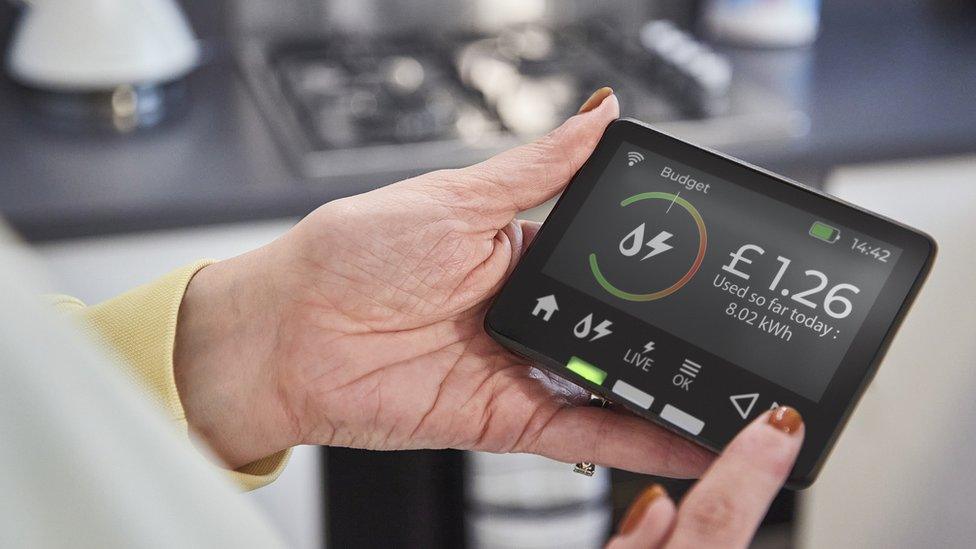Energy standing charges review after anger at rises
- Published
- comments

Billpayers, charities and businesses are being urged to give their views on daily standing charges on energy bills, as part of a review.
Regulator Ofgem said it wanted to open the debate over the charges, including opinions on how to change the system.
Currently, energy customers pay a fixed daily charge covering the costs of connecting to a supply.
But there has been anger about increasing fees and customers' inability to reduce what they pay.
Charges vary depending on where customers live, but the amount of energy that they use is irrelevant for this part of a household bill.
In most areas, the charge - which is capped by the regulator - has doubled over the last two years. A typical household pays 53p a day for electricity and 30p a day for gas - adding an extra £300 to the total bill each year.
The money is also used to cover other costs, such as dealing with the failure of some suppliers.
Ofgem is also due to announce next week what the official energy price cap will be from January.
The price cap limits how much suppliers can charge households for each unit of gas and electricity they use, and Ofgem uses those unit prices to work out how much a typical dual-fuel household can expect to pay. Some households will pay more if they use more energy, some will pay less.
The regulator is changing its estimate for how much gas and electricity is used by a typical household. Under the old system, the price cap for a typical household for October to December was £1,923 a year.
Ofgem has now recalculated that to £1,834. On this basis, analysts at Cornwall Insight have predicted the cap will rise by 5% to £1,931 a year from January, before starting to fall from the end of March.
Cornwall is also predicting a rise in electricity standing charges from April 2024 of 8p per day "primarily due to the ongoing reform of network charges, which has shifted more of the charges from per unit to per day".
'Time to look again'
Ofgem has made some changes to the standing charges system, but this is the first time they have opened up the possibility of wholesale change or scrapping the charge completely.
They have said that any alternative system would need to have extra protections for customers who have high energy use for medical reasons.
Previous reviews concluded that there were winners and losers from a complex system. If the standing charge was scrapped, Ofgem said suppliers would still have to cover the costs in other ways, which would mean charging a higher price for every unit of power used.
Tim Jarvis, director for markets at Ofgem, said: "We know that standing charges have provoked a huge amount of debate in recent months, and, with wider cost of living pressures meaning customers will continue to struggle with bills, now is the right time to look at this again.
"However we proceed, there is a difficult balance to be struck, which is why it is important as many as people as possible respond to our call for input with their experiences of it, how it affects them and what the alternatives could be."
People can submit their views via email to StandingCharges@ofgem.gov.uk by 19 January.

Here are some energy saving ideas from environmental scientist Angela Terry, who set up One Home, a social enterprise that shares green, money-saving tips:
Get a water-efficient shower head free of charge from your water company and use showers rather than baths
Consider loft insulation, which she says costs around £680 for a typical semi-detached home and could save £285 a year on gas bills
Hang out washing instead of using a tumble dryer, and walk instead of drive when possible
Use windy days to feel where draughts are in the house. Wetting the back of your hand helps to locate them, then use insulation or draught-proofing tape
Where available, press the smaller button to use less water to flush the toilet

Related topics
- Published25 August 2023

